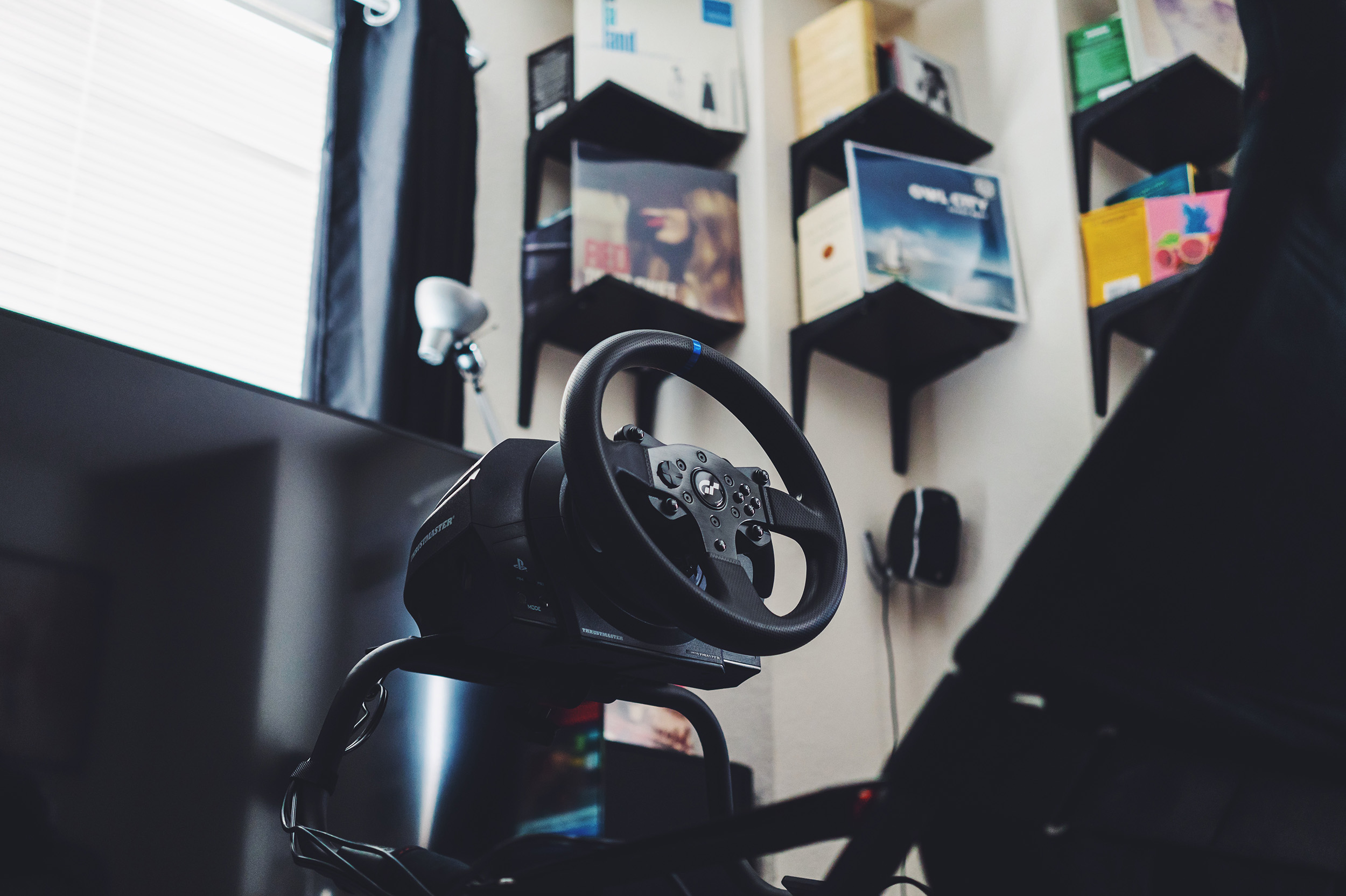This past weekend I did the usual driving on my makeshift simulator playing GT Sport. My absolute favorite thing to do - and just about the only thing I do these days - is drive the Porsche 911 GT3RS on the Nurburgring Nordschleife. Cumulatively since early Summer I must’ve driven around 200 laps on the 13+ mile circuit, which is a number I aim to get into the thousands.
For whatever reason, probably a mix of boredom and curiosity, I had the urge to sample another popular racing game: Assetto Corsa. The game also features the Nordschleife and the same model year GT3RS so I thought it’d be a bit of intrigue to compare the two titles. A hefty 25GB download and $40 dollars damage to the wallet later, for the first time ever I was driving a different game that isn't Gran Turismo.
I really should’ve switched sooner. Assetto Corsa is absolutely fantastic. Graphically it cannot hold a candle to GT (zero attempt at photo-realism here) but on driving dynamics it’s a league above. For the longest time I’ve read about how the likes of GT and Forza are more on the arcade side than pure simulation, and that has been utterly confirmed within one lap of the Nordschleife in AC.
It’s completely down to the tires. GT’s physic engine is quite excellent in replicating responses and reflexes of a real car, and in that area it isn’t far behind Assetto Corsa. What AC revealed to me that was utterly lacking in GT is proper tire simulation. Tires in GT are standardized arbitrary values with no basis of correlation to anything realistic. High horsepower road cars in GT Sport are practically un-drivable even with traction control turned on unless racing slicks are put on.
A Ferrari LaFerrari in GT Sport will roast its stock tires through the first four gears - highly unrealistic. Even the aforementioned GT3RS is unusable in first gear because it cannot find traction - unless I put on slick tires.
Assetto Corsa has shown me the light: proper tire model is the foundation of a good driving simulator. AC replicates the actual tires of what a particular car came with from the factory. Select a Toyota Trueno Sprinter AE86 in the game and in the setup menu it’ll show it’s fitted with ‘Street 90s’ tires. A GT3RS on the other hand is shod with bespoke ‘Hypercar road’ rubber. Good tire modeling provides a tremendous amount of road feel and information transmitted through the steering wheel. Instead of relying on muscle memory I can now better react to the minute details of what the car is telling me.
Playing Assetto Corsa has been a revelation. I don’t think I can go back to GT Sport, as incredibly beautiful and pretty to look at it may be (I’m going to miss the sunset flares and orange glow on the Nordschleife). AC is great if you’re like me and just want to get in a car and go: all tracks and cars are available right from the beginning.
Cheers to many more miles to come.
It may be a GT logo on there but it's all Assetto Corsa from now on.






